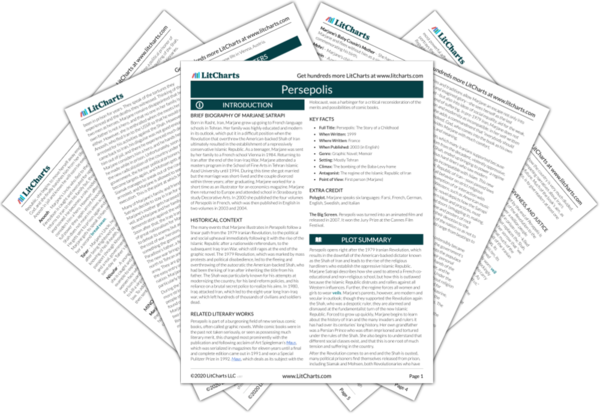The plastic key painted gold is a beautiful object from the outside. Mrs. Nasrine’s son is given the key by his teachers at school, to represent the “beautiful” idea that if he were to die for Iran in the war against Iraq he would be a martyr and immediately enter heaven. Mrs. Nasrine, however, sees the key, which being plastic is actually nothing more than a trinket, as propaganda and brainwashing—she believes that the regime wishes to sacrifice her son for the cause of a political war rather than putting any real value on his life. The key, then, is a way for the regime to further the war and people’s enthusiasm for it, but it also comes to represent in the book how the regime’s promises emphasize beauty and reward but are often self-serving and hollow. It turns out, also, that only the lower class boys, who are shipped off to the front, get these keys from their schools. The rich boys do not get fed such stories of paradise. Thus, the key also demonstrates the great class divide entrenched in Tehran’s society.
